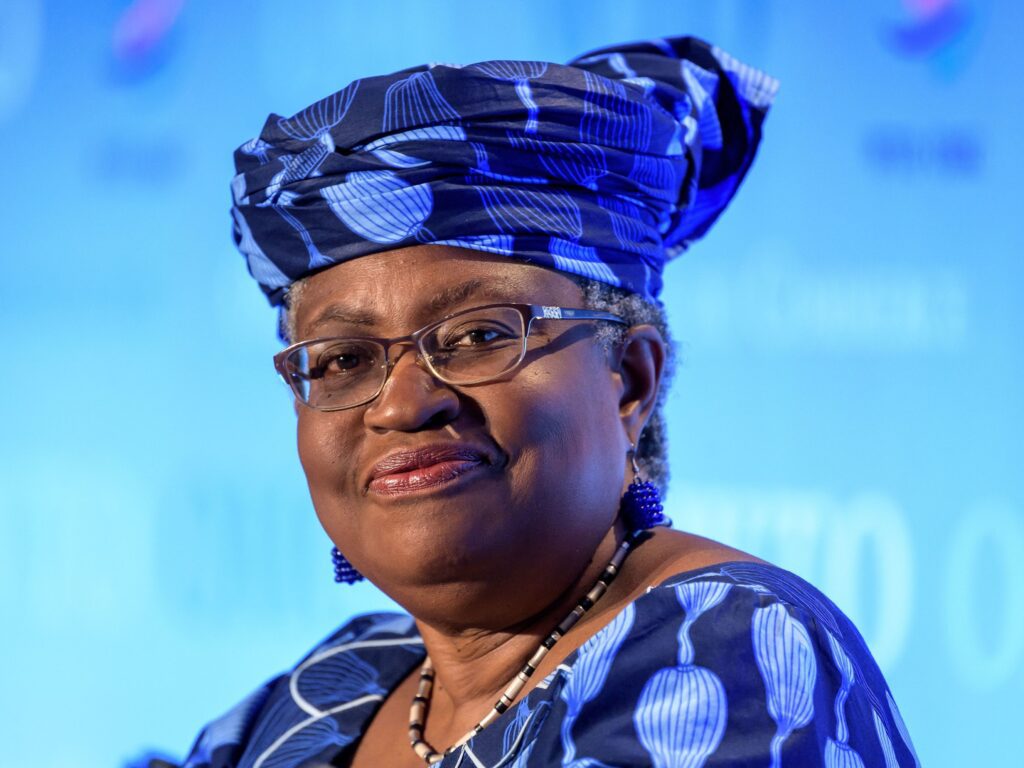By Esther Agbo
The Director General of the World Trade Organization (WTO), Ngozi Okonjo-Iweala, has highlighted the urgent need for Nigeria to adopt and maintain consistent economic policies to reverse the ongoing decline in the country’s Gross Domestic Product (GDP) growth rate.
Speaking at the Nigerian Bar Association’s (NBA) annual General Conference, Okonjo-Iweala emphasised that Nigeria’s average GDP growth has been negative since 2014, underscoring the impact of policy inconsistencies on the nation’s economic trajectory.
According to Okonjo-Iweala, the period between 2000 and 2014 marked a time of relative economic prosperity for Nigeria, with the GDP growing at an average rate of 3.8 percent annually.
This growth outpaced the country’s population increase of 2.6 percent per year, resulting in an overall improvement in living standards for Nigerians.
However, she noted that this positive trend has not been sustained in recent years, with the GDP growth rate now averaging a negative 0.9 percent per year since 2014.
The former Finance Minister attributed this downturn to the failure of successive governments to build on past economic reforms and maintain policy continuity.
She argued that the absence of a stable economic framework has led to diminished job prospects and a decline in the well-being of millions of Nigerians.
She remarked, “We have had episodes of reforms and faster economic growth that was not merely a function of the price of oil. But we have been unable to consolidate and build on them and millions of our compatriots have paid the price in terms of diminished job prospects and human well-being.
“For example, in the decade between 2000 and 2014, we have an average GDP growth rate of 3.8 percent well above our population growth rate of 2.6 percent per annum, meaning that people were on average truly improving their standard of living.
“During the following decade, average annual GDP per capita has been negative around minus 0.9 percent meaning people were worse off because we were not able to sustain prior positive growth momentum.”
Okonjo-Iweala called for a new social contract between the government and the populace, one that transcends political affiliations and ensures the implementation of sound economic policies regardless of which party is in power.
She stressed that this continuity is crucial for Nigeria to achieve long-term economic stability and growth.
“Maintaining good economic and social policies; maintaining policy consistency and adding more reforms on top of that will lead us along the path of good progress that we all desire,” she added.
As Nigeria grapples with various economic challenges, including high inflation, low employment rates, and rising national debt, Okonjo-Iweala’s comments serve as a stark reminder of the importance of policy consistency.
While President Bola Tinubu has expressed ambitions to grow Nigeria’s economy to a $1 trillion GDP, experts caution that without sustained and coherent economic strategies, such goals may remain out of reach.
Okonjo-Iweala’s address at the NBA conference serves as a call to action for Nigeria to prioritise and maintain good economic policies.
She urged that only through consistent and well-structured reforms can the nation hope to reverse its declining economic fortunes and achieve the progress its people desire.

